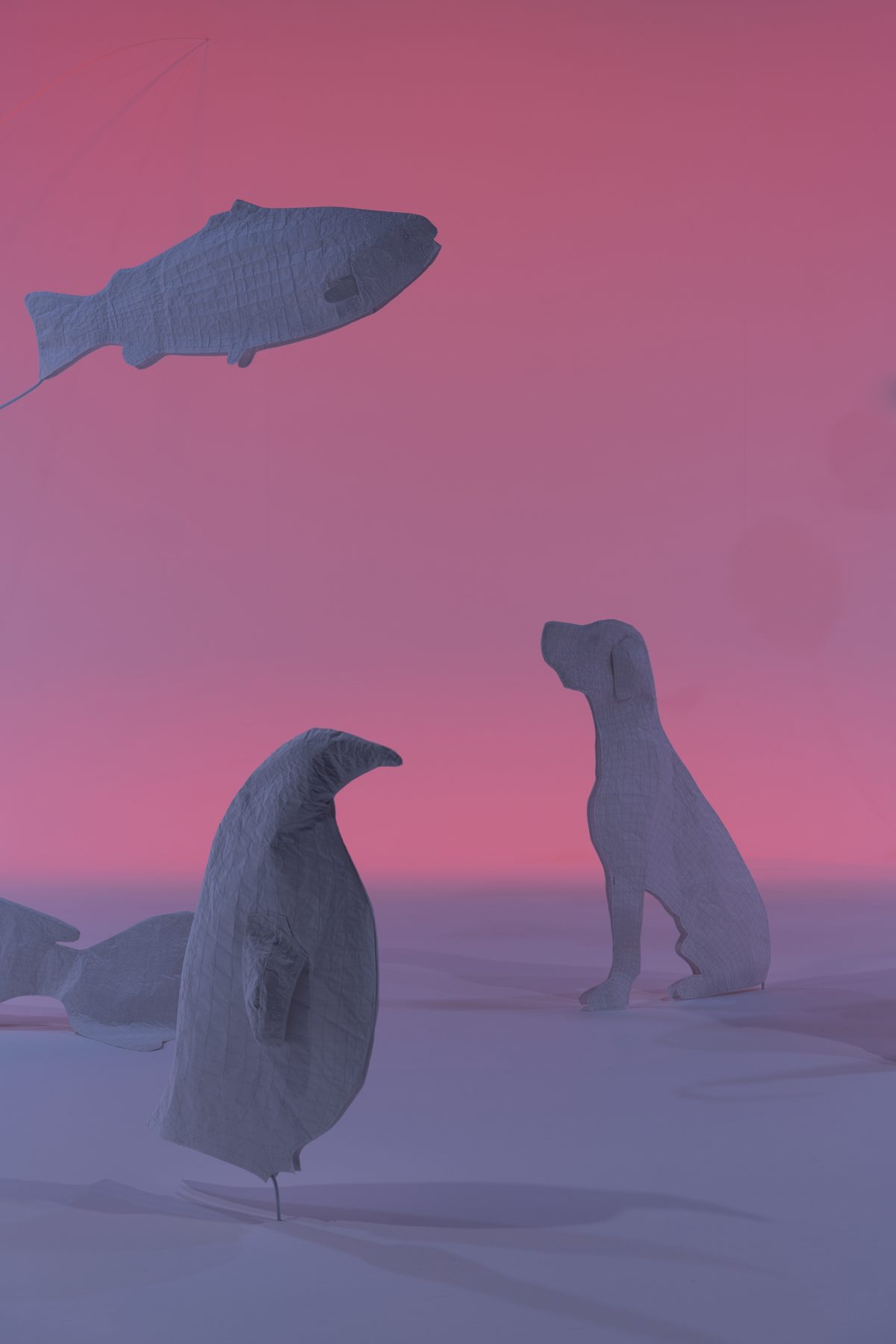
LONDON — Salmon: a color named after a fish. Animal and hue are inextricably linked. But salmon is no longer actually salmon. In their newly commissioned installation and project at Tate Britain, London-based duo Cooking Sections (Daniel Fernández Pascual & Alon Schwabe) attempt to illuminate how industrial globalized aquaculture processes have created a rift between our perceptions and the realities of fish farming.
Blank models of animals stand like puppets in a white stage set, while lights in different shades of salmon-pink are used effectively to dramatize a twenty-minute script, which forcefully conveys some of the interconnected (and deeply concerning) problems caused by industrialized and globalized agriculture.

The voiceover explains that, deprived of their natural food sources, farmed salmon no longer metabolize red flesh. But no one wants to eat grey salmon; we don’t even understand it as such. Consumer demand results in farmers feeding fish petrochemical-derived dyes in an attempt to achieve standardized shades of “salmon”-colored salmon-flesh. And it’s not just salmon — species all over the world are changing color because of industrialized agricultural techniques. In the installation, lights flash on and off, barraging the senses; a reminder that species changing color should be taken as a warning sign. The augured ecological crisis is very close.
Through the voiceover and accompanying sound effects, the artists also point to the severe ecological impact of salmon farms. Diseases and parasites abound, poisoning wild salmon populations and creating ocean-floor dead zones. Moreover, the salmon are fed pellets formed from pig jellies, chicken feathers, and anchovies. These species (which feature as silhouetted characters in the installation) are all involved in their own chains of farming, feeding, and color-changing, contributing to deforestation, overfishing, and population collapses all over the world.
As well as raising awareness, Cooking Sections have also made a direct intervention in Tate’s ecological footprint. They have worked to remove farmed salmon from the menus in Tate’s cafes and restaurants in perpetuity, replacing it with a sustainable alternative. It’s an impressive feat in a behemoth institution like Tate — and a laudable step towards engaged climate action.
Cooking Sections – Salmon: A Red Herring reopens today (May 17) at Tate Britain (London, UK) and continues through August 31. The exhibition is curated by Nathan Ladd.
0 Commentaires